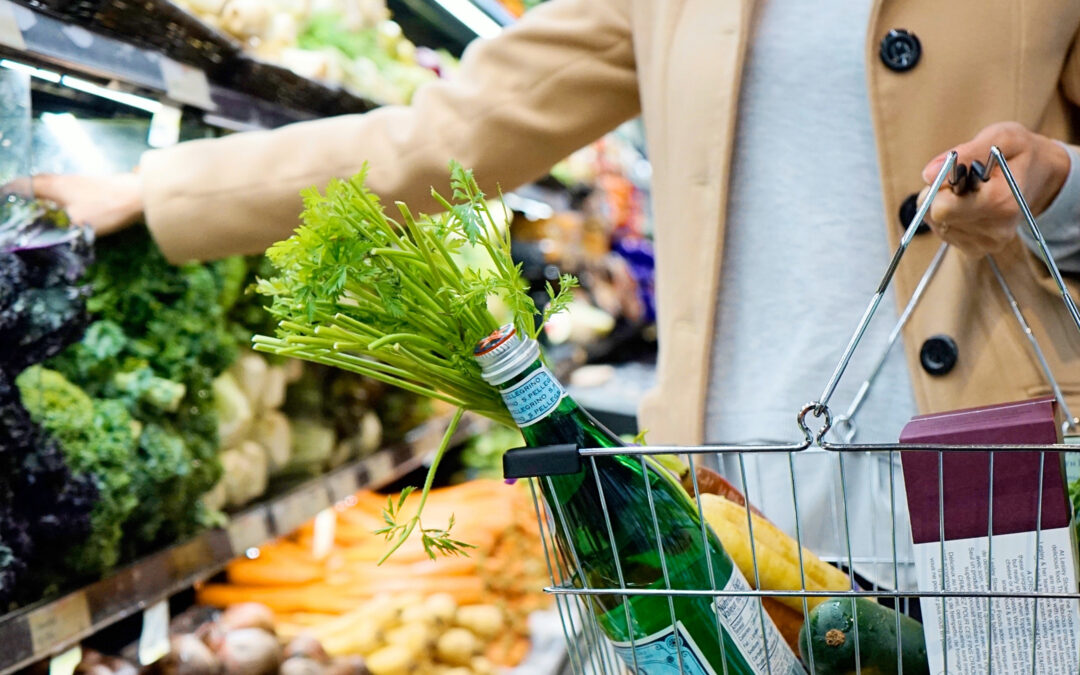How many times have you walked out of the grocery store with bags full of food that you didn’t end up eating before it went bad? If this has happened to you, you’re not alone. According to Dubai Carbon, the UAE ranks among the top nations for per capita waste generation in the world. Roughly, 38% of the food prepared every day in the emirate is wasted, which jumps to around 60% during Ramadan. This isn’t just because people prepare too much food. It’s also because people don’t buy or prepare food smartly.
When you toss food, you throw away hard-earned money. Plus, it’s bad for planet Earth. According to earth.org, the amount of food people throw away around the world is enough to feed 3 billion people.
Yet, there’s good news. By changing your shopping habits and how you prepare meals, you can save money and keep your trash cans from overfilling with uneaten leftovers. Here are some tips that will help accomplish both goals!
Don’t go food shopping when you’re hungry.
You’re already aware that shopping while hungry is a terrible idea. But you might be surprised to learn how much impact this can have on your grocery bill and food waste in your home.
When you shop while hungry, you are more likely to buy processed foods, junk food, and snacks. These items aren’t beneficial to your health, and they cost more per serving than fresh produce. In addition, studies show that when people shop while hungry, they tend to buy more than they need (known as “stockpiling”).
The result? More food going bad in your refrigerator. The take-home message is not to buy more than you need. Also, eat something healthy (and filling) before heading to the supermarket.
Pay attention to “use by” dates.
Most foods are safe to eat a few days after the “use by” date, while others are not. It’s not set in stone but means you should check the food’s quality before eating it. For safety reasons, don’t eat food that’s more than a day or two past its use-by date.
But the “sell by” date is different. It’s a guideline for supermarkets, not the consumer. Roughly a third of a food’s shelf life still remains when food reaches its sell-by date. Pay attention to these dates when shopping, so you don’t choose one too close to expiring and end up having to toss it.
Freeze perishables when possible.
Whether you’re learning to cook more or for ways to be more frugal, freezing your perishables is an easy win. Freezing allows you to buy perishable items at their cheapest price and preserve the extra until you’re ready to use them.
There are a few things that freeze well: meat (in one piece), bread, herbs, noodles, and cheese. You can also freeze onions and garlic, but they lose some flavor when they thaw out, so consider using them fresh. Some other foods will change texture or taste after you freeze them. If unsure about whether you can freeze something, research before purchasing it.
Cook with leftovers in mind from the start.
Put leftovers to work for you by planning your meals around leftovers from the get-go. This can save time and money, as well as ensure your refrigerator doesn’t end up with too many items you have to toss. Store your food properly so you don’t waste it while waiting for an opportunity to use it again.
Consider cooking more than you need, so you can have leftovers for the next day. Make a double batch of spaghetti with mushroom sauce if you’re having it for dinner, so you’ll have enough for the next day’s lunch. This will keep you from having to cook two meals in one day, which could save time and energy.
Plan meals using what you already have on hand.
Planning meals is a good way to save money, reduce food waste and use up leftovers. It’s also a great way to use up food before it goes bad or expires. If you’re tight on cash, try to plan meals using what’s already in your pantry or fridge. It’ll save you money on groceries, reduce food waste, and help you use leftovers before they go bad. Try to use up leftovers or food that’s about to go bad.
An easy way to reduce food waste is by getting creative with leftovers and using up food before it goes bad. Some ideas include:
• Mixing leftover meat and vegetables into a stir fry
• Using wilted fruit in a smoothie
• Add vegetables near the end of their shelf life to soups, stews, or casseroles
• Turn fresh fruit into a puree to use in baked goods
• Add stale bread to a stuffing or casserole
• Use leftover herbs in salad dressings, marinades, or sauces
• Bake stale bread into croutons
• Freeze fresh fruit to keep it longer
• Make a soup or stew with leftover vegetables, meat, and broth
• Revive stale bread by toasting it in an oven or on a griddle
• Use up old herbs by drying them in your microwave
• Freeze fresh herbs in ice cube trays with olive oil to use later
Full your freezer with Frozen, pre-cooked meals.
The perfect way to make sure you have a meal that is enough for the number of people that are consuming it is to fill your freezers with portioned, cooked, ready to heat and eat meals. Frozen is not always healthy. Make sure the meals do not contain preservatives, additives, or MSG. Delektia provides delicious Middle Eastern meals that are fully cooked and ready to just take out of the freezer, heat and eat within 5-8 minutes. The way they are able to do that is by blast freezing every batch, so it preserves the vitamins and nutrients. Each pouch feeds two people to make sure no food goes to waste. No cooking. No waste!
Conclusion
There are many ways to prevent food waste at home. That said, it’s not always easy, especially if you live alone or have a small household. The more aware you are of your purchasing and cooking habits, the more likely you will be to save money and reduce food waste. Food waste is a problem because it costs money, wastes resources, and creates pollution. Reducing food waste can help solve all these problems!


Recent Comments